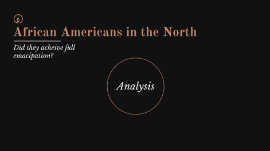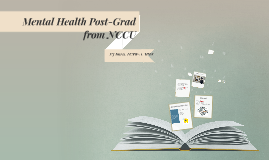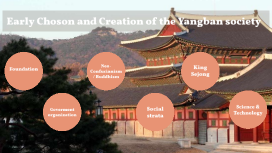Official Presentation
Transcript: Who We Are: Sarah Rajwar 1B A Discussion of Diversity in Identity In October of last year, a draft memo from the Trump administration was leaked in the New York Times that suggested changing the legal definition of sex to exclude gender identity. Backlash #Won'tBeErased Backlash Before long there were multiple rallies in opposition to the memo, and social media was flooded with the trans community making their voices heard with the hashtag #Won'tBeErased. Knowledge Issue: Is identity something that should be or can be proven to others? Should it have to be to be accepted? Diving In What Does This Mean For Knowledge? Human Sciences & Indigenous Knowledge Systems Intuition & Emotion How can the innately personal knowledge of identity through emotion and introspection conflict with shared ideas of what defines you? KC1 Knowledge Claim A: Communities form around people with similar identities due to a sense of comradery in shared experiences. In this case, the barbershop is culturally significant for many in the African American community, and for some the sense of comradery felt towards other African Americans can transcend even stark political disagreement. Identity is often defined by experiences shared by others. Psychologically speaking, identity usually refers to which social groups one belongs to, implying their identity is inherently shared. CC1 Counter Claim A: Identity is still multifaceted and thus subjective, and it is difficult to ever truly convert into shared knowledge. In this instance, despite most of the situation dealing with social pressure against "Chad" due to him being a cultural outsider, it should also be noted that the narrator himself didn't speak up after the white guy because of his "gay voice". Despite being part of the main community here, he still feels the need to hide other parts of his identity that might alienate him. In a larger sense, identities are so complex that even within a community someone can be deemed too similar to an out-group or too different from the in-group, and is discriminated against. KC2 Knowledge Claim B: Within a marginalized community there will be those who try to claim a shared identity for the wrong reasons, which threatens other, “truer” members of that group in their fight to be accepted by society at large. There is fear of the idea of "transtrenders" in the trans community, and certain experiences are often considered requirements in judging if a potential member of the community is "trans enough". It is true that, especially in marginalized communities who are constantly invalidated and discriminated against by society, people choosing to join the community without truly understanding what that identity means can be harmful to the larger knowledge people have about that community. CC2 Counter Claim B: This “gate keeping” not only benefits the oppressive majority that the group is fighting against, but is hypocritical in that it often attacks “false” members for the same things that community has been attacked for by their oppressors. In this case, Bex-Taylor Klaus intended this post originally to be about body positivity and overcoming dysphoria. However, their views on dysphoria became the center of the argument and it was very invalidating and painful for them. Overall, many attest to experiencing gender euphoria rather than dysphoria, or have other reasons for not medically transitioning. Ignoring the diverse experiences of the trans community not only harms knowledge within the community but encourages misconceptions outside of it. I have had some confusion in my own life regarding identity. Sexuality and confusion growing up in a family with mixed cultures. It's not always easy to know what I am allowed to speak on, where exactly I fall, so I have spent a great deal of energy trying to learn different experiences and perspectives in an effort to understand my own. Led me to develop an emotional attachment to these issues, and affected my political leanings, thus further influencing my opinion. Overall, my experiences have contributed to biases, but they also mean these issues are personally significant for my life. Personal Connection Identity is personal knowledge at its heart, yet communities are based so much on shared identity that it is difficult to form a clear picture of who is "in" and who is not. In the end, identity is too subjective and complicated to ever truly standardize, like a great deal of personal knowledge, but it can be best translated with the understanding that one person's experiences might not match another's. Acknowledging these limitations and choosing empathy can improve our social knowledge as a whole. In Conclusion...

















